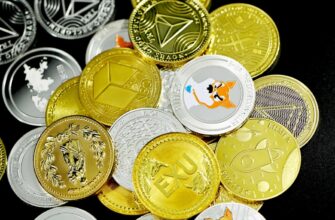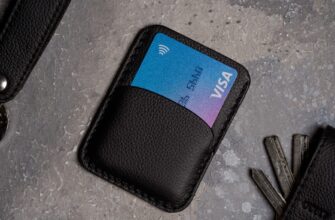- Introduction: Navigating Crypto Purchases Securely
- Step 1: Choosing a Reputable Exchange
- Step 2: Fortifying Your Account Security
- Step 3: Secure Payment Methods
- Step 4: Wallet Strategy – Your Crypto Vault
- Step 5: Recognizing and Avoiding Scams
- Essential Safety Practices
- Frequently Asked Questions (FAQs)
- Conclusion: Security as Your Foundation
Introduction: Navigating Crypto Purchases Securely
With cryptocurrency adoption soaring, knowing how to buy crypto safely is crucial for protecting your investments. Over $14 billion was lost to crypto scams in 2021 alone, making security knowledge non-negotiable. This guide walks you through essential security protocols, wallet strategies, and scam avoidance techniques to ensure your entry into digital assets remains protected.
Step 1: Choosing a Reputable Exchange
Your first line of defense begins with selecting a trustworthy platform. Prioritize exchanges with:
- Regulatory compliance (e.g., Coinbase, Kraken, Binance in regulated jurisdictions)
- Transparent fee structures with no hidden charges
- Cold storage for majority of user funds
- Insurance coverage against breaches
- Positive user reviews on independent platforms like Trustpilot
Always verify domain URLs to avoid phishing clones – legitimate exchanges use HTTPS encryption.
Step 2: Fortifying Your Account Security
Once registered, implement these critical safeguards:
- Create a 12+ character password mixing uppercase, symbols, and numbers
- Enable Two-Factor Authentication (2FA) via authenticator apps (Google Authenticator/Authy) – avoid SMS-based 2FA
- Whitelist withdrawal addresses to prevent unauthorized transfers
- Use a dedicated email with 2FA for crypto accounts
Step 3: Secure Payment Methods
Minimize risks during transactions:
- Bank transfers (ACH/SEPA): Lowest risk with reversible options
- Debit cards: Faster but higher fees; enable transaction alerts
- Avoid peer-to-peer trades with unverified sellers
- Never use public Wi-Fi for transactions – employ a VPN if essential
Step 4: Wallet Strategy – Your Crypto Vault
Never store large amounts on exchanges. Transfer purchases to:
- Hardware wallets (Ledger/Trezor): Offline storage for long-term holdings
- Software wallets (Exodus/MetaMask): For smaller, active funds
- Paper wallets: Cold storage for maximum security
Always verify wallet addresses twice before transferring – crypto transactions are irreversible.
Step 5: Recognizing and Avoiding Scams
Stay vigilant against these common threats:
- Phishing emails/sites: Check URL spell and SSL certificates
- “Giveaway” scams: Legitimate projects never ask for crypto upfront
- Fake apps: Download wallets/exchange apps only from official stores
- Pump-and-dump groups: Avoid “guaranteed returns” schemes
Essential Safety Practices
- Start with small test transactions before large purchases
- Regularly update wallet software and OS security patches
- Never share seed phrases or private keys – legitimate services won’t ask for them
- Monitor accounts for suspicious activity weekly
Frequently Asked Questions (FAQs)
Q: What’s the safest cryptocurrency for beginners?
A: Bitcoin (BTC) and Ethereum (ETH) traded on regulated exchanges offer the most security due to liquidity and established track records.
Q: Should I verify my identity on exchanges?
A: Yes. KYC (Know Your Customer) verification is mandatory on licensed platforms and protects against fraud.
Q: How do I recover crypto sent to a wrong address?
A: Typically impossible. Always double-check addresses and send a test transaction first.
Q: Are hardware wallets worth the cost?
A: Absolutely for holdings over $500. They provide bank-grade security against online threats.
Q: Can I reverse fraudulent transactions?
A: Blockchain transactions are immutable. Report to authorities immediately, but recovery is unlikely.
Conclusion: Security as Your Foundation
Buying cryptocurrency safely demands continuous vigilance. By choosing regulated exchanges, implementing robust authentication, using hardware wallets, and recognizing red flags, you build an impenetrable security framework. Remember: In crypto, you are your own bank. Treat private keys like vault combinations, and never let convenience compromise safety. Start small, verify everything, and let security guide every transaction.








